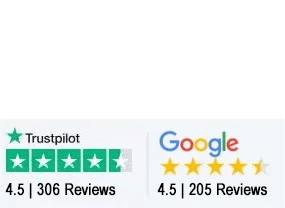Moving To Vietnam From US

Get a Free Moving Quote Now!
Start Your International Moving Journey





Vietnam, officially known as the Socialist Republic of Vietnam (SRV), is located in Southeast Asia and is home to around 100 million people. Over the past 30 years, Vietnam has made significant strides in its development, improving living standards and drawing the attention of foreigners looking to settle there permanently.

Vietnam has much to offer, from majestic mountains to stunning beaches, a vibrant expat community, friendly locals, delicious food, and a reasonable cost of living. This makes it one of the top choices for expats from the US seeking a new permanent home.
Customs Regulations for Vietnam
Documents Required

If you are planning an international move to Vietnam, you will need certain documentation to get into the country legally. Here are the documents you are required to bring with you upon entry:
- Original passport – name must be same as name on packages and documents
- Inventory – two detailed copies, in English (“Packed By Owner” PBO documents not accepted)
- Notation of brand, model and serial number for electronic items
- Loading sheet displaying item numbers in each liftvan
- Work permit displaying that you or your organization is authorized to set up company in Vietnam – required for shipment to be cleared
- Copy of airport customs declaration retained by your last entry
- Letter authorizing your destination agent to handle customs clearance
SHIPPING REGULATIONS

When shipping your belongings internationally to Vietnam, you’ll need to follow the specific regulations for customs clearance.
- You must be in Vietnam for customs clearance for both air and sea shipments.
- You must have your passport for shipments to clear customs.
- You are allowed only one air and one surface shipment.
- Customs inspects every shipment.
- All items in shipment must be owned by you – no “new” items allowed.
RESTRICTED/DUTIABLE ITEMS

Moving internationally to any country means that you’ll have to pay duties on some of your items. These dutiable items vary from country to country.
- Luxury items: television sets, radios, VCRs, computers, stereo systems, automobiles, motorcycles – heavily taxed
- Alcoholic beverages and tobacco products – must be on inventory with specific details, heavily taxed (less than two cases of alcohol advised)
- Books, CDs, videos, discs, calendars and document files – inspected by Cultural Department, must be on inventory list (recommended as accompanied baggage)
- Medicine – prescription required
- Electronic items – must be on inventory detailing brand, model and serial number
- Antiques should be photographed at origin and declared to customs upon arrival
- Unauthorized use of items listed above can result in confiscation or heavy fines
PROHIBITED ITEMS

In some countries, certain items are completely prohibited. Here are some things you cannot bring into Vietnam under any circumstances:
- Firearms and ammunition
- Narcotics
- Pornography and cultural or politically sensitive material
- Radio transmitters
- Satellite dishes
- Political or historical books about Vietnam
*If any of the above items are imported into the country, the Vietnamese Government will confiscate them immediately.
MOTOR VEHICLE REGULATIONS

When importing your vehicle into Vietnam, there are some important rules to keep in mind.
- All automobiles must be left-hand drive.
- All automobiles must have less than 100km driven.
- All automobiles are subject to 150 percent duty (value assessed by customs officials). Motor vehicles for diplomatic or international organizations can be imported duty-free under terms of certain foreign investment licenses.
- Motorcycles are strictly limited to 125cc engine size or smaller.
- All automobiles require an import permit, a certificate of registration and the appropriate car documentation.
PETS AND ANIMALS REGULATIONS

What about bringing your furry friend to Vietnam for the move? Sometimes, moving your pets can get complicated, so remember these Vietnamese customs regulations:
- Pets are duty-free.
- You must provide the following documents for your animal to clear customs:
- Health certificate – issued by veterinarian within seven days of arrival
- Rabies vaccination papers
- Sanitary Certificate
- Letter authorizing destination agent to handle customs clearance
- Document specifying type of pet, name, breed, sex, color, size, weight and age of animal
*There are currently no kennels available for domestic pets in Vietnam, so plan your animal’s arrival accordingly.
DUTY AND TAX RATE PERCENTAGE

In Vietnam, value-added taxes (VATs) range from zero percent to 20 percent depending on the type of item. For example, the average rate for most goods is around 10 percent VAT. As for import duties, the cost, insurance and freight (CIF) price of imported goods has a duty of anywhere between zero percent and 150 percent levied on it. Vietnam uses special rates for most-favored nations (MFN) and ASEAN member nations, as well as Japan, China, Australia and New Zealand. All other countries are subject to the standard rates.
NOTE – Customs regulations are subject to change at any time. The proceeding information is a brief summary of customs regulations applicable to household goods shipments to this destination and is being provided for general guidance to assist our Agents and Customers. Since such regulations are subject to change without notice, International sea & air shipping cannot be held liable for any costs, damage, delays, or other detrimental events resulting from non-compliance. Always double check with your local embassy or consulate.
Call our International Moving Specialists @ 1 (866) 315-4170
Language and culture of Vietnam
Learning Vietnamese is one of the most important things that an expat may need to do. The people of this country are worried about expats, so they are extensively learning foreign languages to integrate well with the newcomers in their country.
However, if you know well the English language, you won’t face issues in communicating with the locals of the country. You can easily take up the Vietnamese language courses as this will be affordable as compared to the other language courses.
Cost of living and taxation
The low cost of living in Vietnam makes it a popular choice among the expats for relocating. Also, known as the “Dragon of Asia”, Vietnam is one of the most low living cost countries in the world. According to around 93% of the expats, the income they are making is sufficient to cover their expenses in Vietnam.
- The rate of inflation in Vietnam is as low as 4% on average.
- US expats can enjoy a lifestyle that would be unthinkable for them in their native land, such as high-end housing, easy access to leisure activities, and regular meals at restaurants.
The healthcare system of Vietnam
Vietnam isn’t the best country when it comes to the healthcare system. Public hospital services aren’t adequate; however, the expats have the provision to go to international hospitals and have access to quality but expensive healthcare services.
Usually, the expats will opt for such services that they can afford and provide them with good health and medical insurance. High pollution levels are a major problem in the country, especially in Hanoi and Hochi Minh City. You must also know that the rate of cancer in Vietnam is very high.
Education in Vietnam
The education system in Vietnam comprises the pre-primary, primary, secondary, and higher levels of education. Here’s what you need to further know about the education system if you are planning to relocate there with your kids:
- Elementary education is mandatory and cost-free in this country.
- You will find several English-speaking international schools in Vietnam.
- You can choose a school for the kids, depending on your personal choice, budget as well as space.
- In the case of an international school, you must know that there is a waiting list, and the cost of enrollment is also very high. You can expect to pay an approximate amount of $4500/year for enrolling your child in an international school.
Transportation
Vietnam is far behind when it comes to the transportation framework. This country doesn’t have a high-class airport and subway, as compared to that of Thailand, Malaysia, and Singapore.
However, the transportation infrastructure of Vietnam is slowly improving. For instance, the first metro station was opened in Hanoi around 2019 and the construction of an international airport had started in Ho Chi Minh City at around 2021.
Payment system
The banking system of Vietnam isn’t very advanced, and cash is majorly predominant. You will find ATMs mostly in tourist places and the majority of the shops won’t have credit card terminals. So, if you are planning to relocate to Vietnam, make sure you are used to carrying cash, as cash-on delivery is more popular in the country.
Pets in Vietnam
The people of this country love cats and dogs, they are known to be popular, especially among the local population. It’s easy to find pet food and accessories in this country, as numerous stores are available for the same.
So, if you are planning to move abroad to Vietnam with your pets, you must know that they may be quarantined for a certain period. Moreover, they will need to undergo a medical check-up by a recognized and registered veterinarian in the country.
Formalities to Accomplish Before Moving to Vietnam
Apply for a Visa
A visa is mandatory for expats moving to Vietnam. You can apply in person at the Vietnam Embassy or online.

Here are the four categories of Visas:
Tourist visa
- A tourism visa will be either for single-entry or multiple-entry.
- A tourist visa will be valid for three months. With this visa, you can stay in this country, move out, and again return within its validity period.
- If you are applying for a tourist visa for Vietnam, it will be imperative for you to have a valid passport as well. Moreover, the passport should be valid for another six months, even after you return from the country.
- The visas for Vietnam will be issued to you with certain dates of arrival. You can’t arrive in this country before this date; however, you can enter Vietnam after this date.
Business visa
- A business visa will be issued by the Vietnam Embassy or Consulate.
- A business visa can be issued to you upon arrival in the country as well. This will only be possible if you have received an invitation letter from a company based in Vietnam that has undertaken the responsibility of sponsoring you.
Residence card
- If you plan to move permanently or for more than three months in Vietnam, you will need to obtain a permanent or temporary residence card from the police station.
- A residence card will usually be valid for the period as per your work contract with your employer.
Work visa
- A work visa will usually be valid for 12 months, and you can even renew it before its expiry date.
- The employer needs to advertise the job vacancy stating that there weren’t any Vietnam nationals to fill this vacancy before you start with the application process.
Here are a few eligibility criteria for applying for a work visa:
- The applicant should be at least 18 years of age.
- The applicant must have a good health condition.
- The applicant mustn’t have any previous criminal record.
- To be eligible for a work visa, the applicant must have a work experience of a minimum of three years.
A work visa application needs to be submitted to the nearest Vietnamese Embassy or Consulate, or you can even obtain such a visa upon your arrival to the country. Also, before applying for the visa, you must request a work permit from your employer, which will permit you to legally work in the country for more than 90 days. It will be the responsibility of the employer to submit the relevant paperwork and apply for the work permit at the Vietnam Ministry of Labor, Invalid and Society.
Are you all set to move overseas to Vietnam? The good news is that you can relocate your personal belongings like furniture, household electronics, clothes, bedsheets, linens, etc. You can either move them by sea or air, but before you move ahead, check it with the customs office and ensure to have the required documents.
International moving to Vietnam from USA Checklist
Here’s what you must do to prepare for an international move:
Hire an international moving company
Not all professional movers can handle the complexities of relocating abroad. Also, no international moving company will be an expert in moving to all countries. So, you must carefully research some of the shortlisted moving companies and check whether they can help you relocate successfully to Vietnam or not.
Request an in-house estimate
After you have shortlisted an international moving company, you need to call them to take an in-house estimate of all the belongings to want to move to your new destination.
Save money
Even if you want to hire the cheapest international movers, it will be costly. In short you can expect to pay something around $10,000.
Prepare your documents
Once you decide that you will move internationally, start preparing all the relevant documents, like passport, visa, citizenship etc. The right process to do so has already been described in this guide.
Inform the government agencies
If you decide to relocate to another country, you must notify the following agencies:
- The Social Security Administration
- The United States Postal Service
- The IRS
- The Federal Voting Assistance Program
- DMV of the present state
Plan your travel
You must book the flight tickets and other travel arrangements like cab, hotels well in advance.
Prepare to settle down
You must start preparing for your new life in the new country. For example, if you need to find a good and safe place to stay, search for a job and schools if you have kids relocating with you.
Now that you know everything about moving internationally you shouldn’t face many issues while planning your move to Vietnam. So, get all set, hire the movers, schedule a moving date, start packing your moving boxes and move efficiently and smoothly to Vietnam.
Famous destinations in Vietnam for US Expats
Hochi Minh City
Also, known as Saigon in its pre-war phase, Hochi Minh City is home to around 9 million people. This popular city has a booming expat community and it’s one of the costliest cities in Vietnam. You can expect to find a one-bedroom house for around $700 or even less.
Hanoi
This city is more traditional as compared to the Hochi Minh City, which mostly has Western vibes. Hanoi has several skyscrapers, business districts, and the ancient French Quarter.
Hanoi has an interesting ambiance along with pagodas, wealthy markets, artistic hub spots, and music venues. The prices here are extremely good, for instance, you can enjoy the view of a lake at around $600.
Danang
This city is smaller than Hanoi and Hochi Minh City. Danang has an outstanding coastal spot that offers plenty of sand, sun as well and seafood. Also, it’s famous for its clothing market, living cost, and beautiful craft. Mostly you can expect to buy an apartment for something in between $500 to $600.
